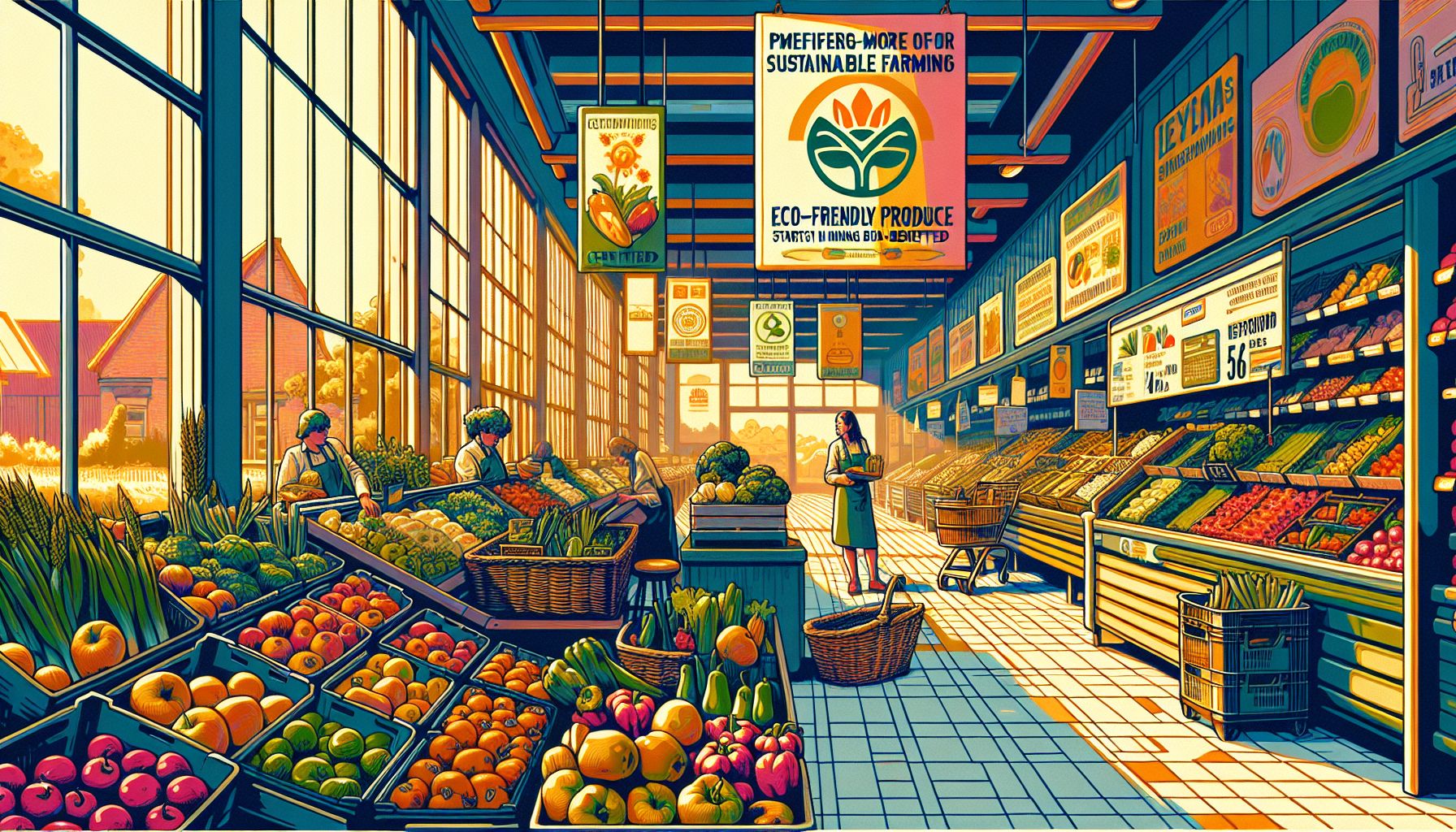Dutch Supermarkets Boost Sustainable Farming: Higher Prices for Eco-Friendly Produce

Netherlands, Thursday, 25 July 2024.
Starting 2025, Dutch supermarkets will pay more for sustainably produced fruits and vegetables, benefiting 3,000 certified farmers. This groundbreaking agreement aims to level the playing field and promote environmentally responsible agriculture, potentially sparking a domino effect in sustainable farming practices.
A Long-Awaited Agreement
After years of negotiations, the decision to increase payments for sustainable produce marks a significant milestone for Dutch agriculture. Farmers who adhere to the ‘On the way to PlanetProof’ certification will be the primary beneficiaries of this initiative. This certification ensures that agricultural practices meet stringent environmental standards, including soil management, biodiversity conservation, and reduced emissions. The agreement has been praised by Stefanie de Kool from Stichting Milieukeur, who called it ‘unique and fantastic,’ highlighting the anticipation and effort that went into reaching this consensus.
Impact on Farmers and Retailers
Approximately 3,000 farmers will benefit from this agreement, which promises to make sustainable farming more financially viable. Dingeman Burgers, a potato farmer, expressed relief that the playing field is becoming fairer, as he and others will no longer have to compete with non-sustainable produce priced lower due to less stringent farming practices. The compensation for sustainable practices is based on an independently calculated sustainability fee, providing transparency and stability for both farmers and retailers.
Supermarket Participation and Consumer Impact
The agreement includes almost all major supermarket chains in the Netherlands, with the notable exception of Albert Heijn, which has its own sustainability certification program. While there is some uncertainty about whether supermarkets will pass the additional costs onto consumers, de Kool believes that any price increases will be minimal in comparison to overall market prices. The goal is to ensure that sustainable practices do not lead to significant financial burdens for consumers.
Challenges and Future Outlook
While this development is a positive step towards sustainable agriculture, it is not without its challenges. Jeroen Candel, an agricultural policy lecturer at Wageningen University, acknowledges the progress but raises concerns about the overall effectiveness of certification systems. He emphasizes the need for broader interventions in the agricultural environment to address issues such as climate change, biodiversity loss, and water quality. These remain significant hurdles for the sector.
Broader Context of Sustainable Practices
Beyond the Netherlands, the global push for sustainability in the food sector is gaining momentum. For instance, European supermarkets are being urged to adopt targets to increase the share of plant-based proteins they sell, as meat and dairy sales contribute significantly to food retailers’ emissions[3]. Additionally, initiatives like energy-efficient refrigeration systems developed by the University of South Australia and Glaciem Cooling Technologies are paving the way for greener supermarket operations[5].
Conclusion: A Step Towards a Greener Future
The agreement to pay more for sustainable produce in Dutch supermarkets is a landmark achievement, reflecting a growing recognition of the need for environmentally responsible agricultural practices. As the world grapples with climate change and environmental degradation, such initiatives are crucial in promoting sustainability. With continued efforts and broader interventions, the agricultural sector can hope to mitigate its environmental impact and contribute to a healthier planet.

